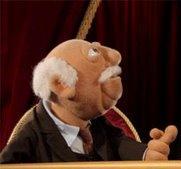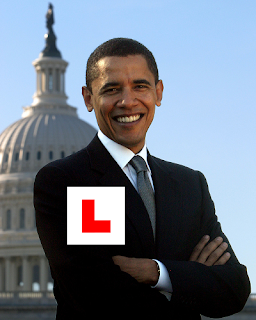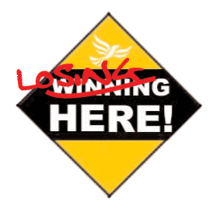
Whenever I attempt to explain to people what my thesis is about, I invariably make reference to Neville Chamberlain, not least because it makes it easy for non-historians to identify the period. And Chamberlain is, unfortunately in my opinion, best remembered for one single event in his entire political career - the signing of the Munich Agreement seventy years ago tonight.
(Strictly speaking the Agreement was signed in the early hours of the 30th September 1938, but was dated to the previous day.)
Now this is not the place to delve into the rest of Chamberlain's career; suffice it to say that an overall assessment cannot but come to a very different conclusion from the populist image of Chamberlain as just a weak man who did nothing but fly to Munich during his three years in Downing Street.
However the Munich Agreement itself has long been misrepresented. It is often forgotten just how incredibly popular it was in the UK. This wasn't just "high opinion poll approval", this was one of the moments where much of the nation poured out its gratitude. In my research I've seen, amongst other things, footage of Chamberlain's car journey from the airport to Downing Street after signing the agreement. On a rainy day people lined the streets in droves. Bar the weather the scene is very reminiscent of the last journey of Diana, Princess of Wales. I've also seen many letters of gratitude sent to Chamberlain, reports of football matches pausing to pay tribute to him and so much more. This was an agreement that the British public embraced.
And it was one that in many ways the British public had made inevitable. The harsh fact, often now forgotten, is that in 1938 there weren't many options available. For a long time the British public (and, I believe, the French public as well but let's stick to the British for now) had given numerous indications that they were reluctant to go to war. Especially not for the Treaty of Versailles, a settlement that had been emotionally rejected by numerous people, whether conservative, liberal or socialist. As the Iraq War has shown, it can be terribly difficult to take a country to war when a large proportion of the population is opposed. It is impossible to contemplate a total war in such circumstances. For all the criticism of the "piece of paper" that Chamberlain and Hitler signed, it mean that there was now something for Hitler to violate which would provoke a desire to go to war amongst the wider public in the way that a violation of the Treaty of Versailles did not.
Also often forgotten is that the British Empire was severely overstretched in the late 1930s and divided. Many troops were stationed in the Far East, where the rise of Japan was worrying. Military resources were weak and overstretched. A war on multiple fronts without allies was a war that could not be won. There was the further problem that the Dominions (aka the Commonwealth countries) would not enter the war. As it was in 1939 Ireland stayed neutral and South Africa only joined after serious political turmoil in both government and parliament. A war in 1938 would have seen even more of the Dominions declining to enter, potentially fragmenting the British Empire as a political force at a crucial time.
The French were seeking to escape their military alliance with Czechoslovakia and could not be counted on. Nor could the "Czechoslovakians" as there were very few such people. As the post war history of that country showed the state was a mix of minorities and it took first the expulsion of the German speaking minority and then the Velvet Divorce to create permanently viable states. People often talk of the people of Czechoslovakia who were prepared to defend themselves as "the Czechs". They are probably even more accurate than they may think - would the Slovakians have fought and died to prevent "millions of Germans from being German" any more than the French or British?
(And how many people remember that after the Munich Agreement "Czechoslovakia" was renamed "Czecho-Slovakia"? The latter form both reflected Slovak desires for equality in the name and is a derivation of the name in Slovak, whereas the unhyphenated is a derivation of the name in Czech. The later Hyphen War reflected a long standing issue.)
So what was the alternative? To take a divided country and Empire into a war for the cause of preventing millions of Germans from being German? To go to war for Vietnam-style domino arguments? To take a country to war when it was not prepared either militarily or domestically? A convincing show of force in 1938 was not as easy as the Agreement's detractors made out.
Indeed today there are parallels. After the Iraq War there are many in this country who are opposed to further military engagements, regardless of the level or genuineness of the threat. Military action would be deeply divisive and if public support for the action is essential it is doubtful that such action could take place. It is easy to scream "Appeasement" and "Munich" against any attempt at a peaceful settlement of any problem in the world, but is military action really a viable alternative?



